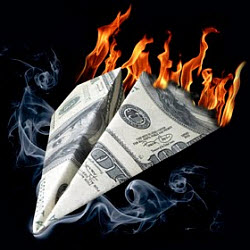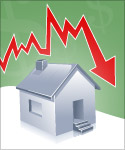 In the aftermath of the government shut down, the value of the U.S. dollar plummeted to it's lowest point in eight months. Some economists are expecting the dollar to plummet even further in value over the course of the next few weeks. We’ve read about the effect that this has had overseas, with irate countries, China especially, advocating for the “de-Americanization” of the worldwide economy — but what are the implications for domestic investors?
In the aftermath of the government shut down, the value of the U.S. dollar plummeted to it's lowest point in eight months. Some economists are expecting the dollar to plummet even further in value over the course of the next few weeks. We’ve read about the effect that this has had overseas, with irate countries, China especially, advocating for the “de-Americanization” of the worldwide economy — but what are the implications for domestic investors?
With the support of the U.S. Treasury, the American dollar has historically set the benchmark. The U.S. Treasury has used its various bonds and other entities all over the world to boost the dollar’s value, making it the default currency for countries and investors all over the world.
However, the recent tension on Capitol Hill — which culminated in the government shutdown and has been somewhat sustained as arguments over the debt ceiling persist — has caused the rest of the world to question the reliability of the dollar. This is why China, and other countries in Asia, are now arguing that the dollar should no longer serve as the global economy’s default currency.
There is also considerable anxiety at home, with many economists in the U.S. expressing concern about the long-term consequences of the government shutdown. Many fear another recession as both the dollar’s value, and consumer morale, steadily decline. The Federal Reserve has kept its stimulus program active, and is expected to keep it active into 2014, if not longer.
There is some ambiguity about how beneficial a stimulus plan really is. There are economists who fear that the stimulus harms the economy by artificially manipulating interest rates while also enabling lending to a degree that just isn’t supported by the struggling markets. However, there is also fear about the detrimental effects of the government shutdown and the national debt on an already stifled (albeit, incrementally improving) economy. The stimulus could be helpful in terms of strengthening the housing market, and hopefully, employment.
There is talk about the need for an alternative currency in the event that the dollar folds, but for now, there’s little more than just talk. Nevertheless, all that talking is disconcerting to Americans, as it reflects the perceived weakness of the dollar in the global economy. But even though the long-term consequences remain unclear, it would seem that for now a catastrophe has been narrowly avoided and the U.S. can continue to borrow money.
Thankfully, the issues surrounding the dollar’s value have not yet had a significant effect on the housing market — certainly not in terms of how homes are being priced. Consumer activity is somewhat erratic, though. And, despite the fact that they’re gradually increasing over time, interest rates are also favorable right now, and this can be attributed largely to the help of the Federal Reserve’s stimulus plan. The future of the U.S. dollar remains uncertain, and the best thing investors can do to weather the storm is stay current with the news and be adaptable.




